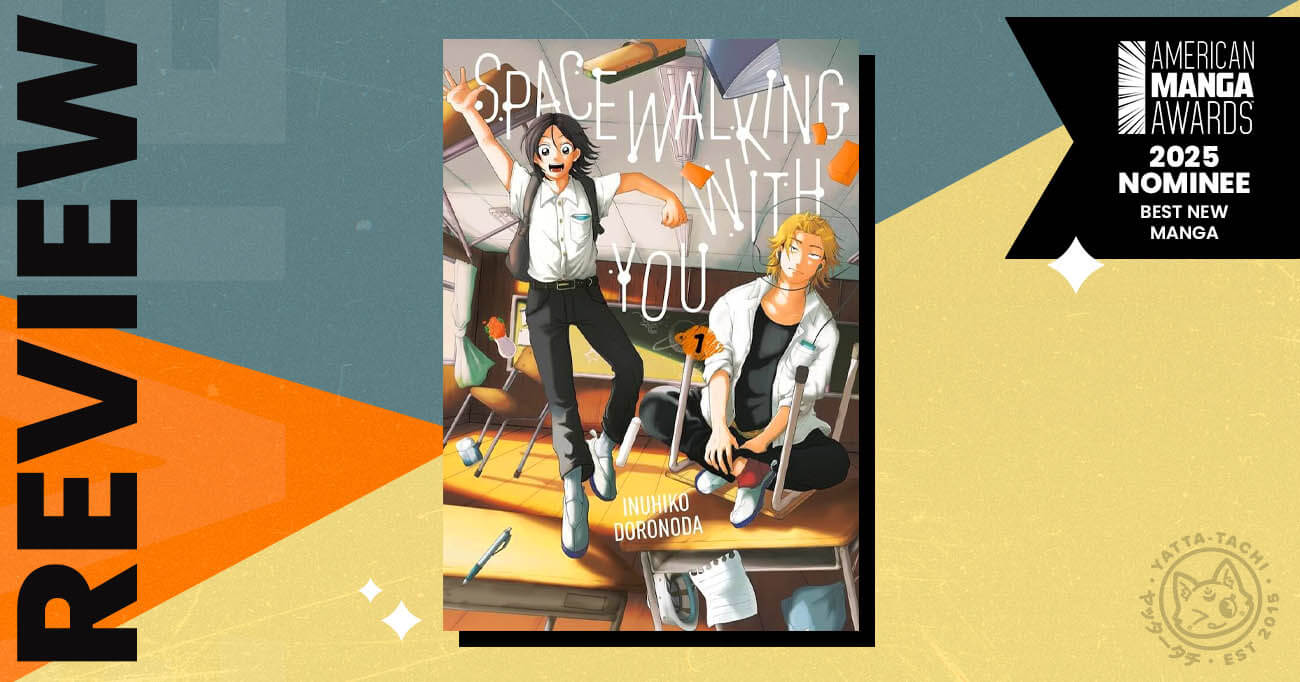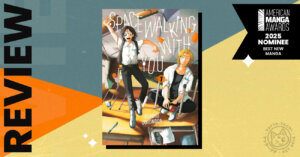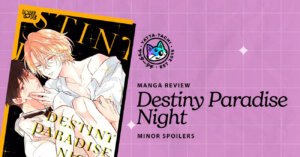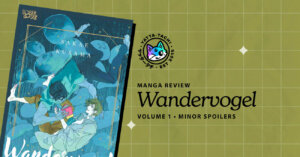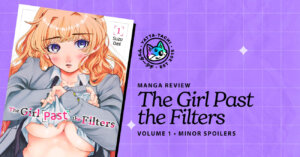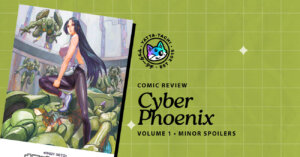Synopsis
Yamato Kobayashi tries to downplay his struggles at school and work by taking on a bad boy slacker image. Keisuke Uno, an eccentric transfer student obsessed with astronomy, manages social and sensory challenges by keeping notebooks of unspoken rules. These two classmates have more in common than either initially realizes, and they become best friends as they navigate a world that can feel as difficult as walking in outer space.
The Good
Spacewalking with You made me cry multiple times in just the first chapter. While author Inuhiko Doronoda’s afterword notes that the manga’s “themes aren’t stated outright” to fit the language of the Heisei era setting (no year specified, but pre-smartphones at least), this is obviously a story about neurodivergence. Uno is autistic, Kobayashi has ADHD, and the two connect through strategies for coping with their differences. For anyone on these spectrums, Spacewalking with You is painfully relatable.
The first moment that made me cry is when Kobayashi realizes why Uno always appears so happy in class despite the bullying he faces. My tears of sadness are followed by tears of recognition, when Kobayashi realizes Uno’s coping strategies can also be useful at his own job, and tears of pure joy, when mutual acts of kindness and poetic metaphors lead to Uno and Kobayashi officially becoming “bros.” This is all in Chapter 1!
School-based slice-of-life manga frequently center around extracurricular clubs, and Chapters 2 and 3 of Spacewalking with You involve Uno and Kobayashi joining the astronomy club. Mikawa, the club’s president who used to be its only member, distrusts Kobayashi’s motivations for joining, and the ensuing conflict overwhelms Uno. While Kobayashi is the manga’s primary viewpoint character, Doronoda’s art skillfully shifts perspectives to visualize Uno’s sensory overload and Mikawa’s anxious imagination.
Though I, as an autistic reader, experienced Spacewalking with You as an emotionally intense drama, Kodansha describes it as a comedy. Is that genre classification accurate? In the Shakespearean sense (there’s never any doubt things will work out okay in the end for these bros), and in the sense that the quirky characters and hyper-expressive art provide a sense of lighthearted amusement throughout. But while Spacewalking with You has a sense of humor, it’s not a gag manga. Put it this way: I can imagine Uno and Kobayashi getting along with Osaka and Tomo from Azumanga Daioh, but if Osaka and Tomo showed up in Spacewalking With You, we’d suddenly be crying for them rather than just laughing along with their antics.
The Bad
If I had to criticize this manga series, perhaps the exaggerated art style makes it hard to tell what’s supposed to read as “normal.” When Uno first introduces himself, his wide eyes and giant smile seem to be among the traits that code him as “different.” But then Saku wears a very similar expression two pages later while calling Uno a “nutcase.” How do you actually determine what “cranked up to eleven” looks like here? Reading on, I get the sense this is intentional humor – that Saku is meant to be extra despite trying to act as an arbiter of normality – so this isn’t a flaw so much as just a brief source of confusion.
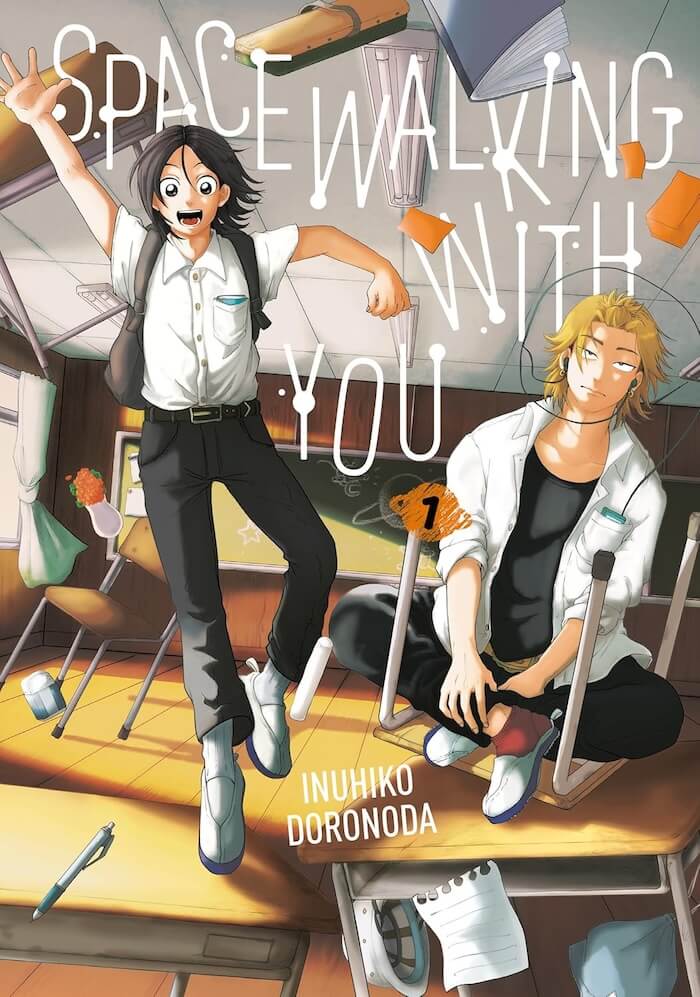
The Verdict
Spacewalking With You is one of the best manga I’ve read in a while, and among the best depictions of neurodivergence I’ve ever seen. I see aspects of myself and my friends in the main characters, and I’d give anything for them to be happy and successful. For a small-scale story, it will make you feel huge emotions. I can’t recommend this book enough and I’m rooting for it at the American Manga Awards.
You can order Spacewalking with You via Bookshop, Barnes & Noble, and Amazon.
If you liked Spacewalking with You, you might also like…
- My Brain is Different: Stories of ADHD and Other Developmental Disorders
- Totto-Chan: The Little Girl at the Window
- Keep Your Hands Off Eizouken!
Credits
Author and Artist: Inuhiko Doronoda
Translator: Joshua Hardy
Letterer: George Bao (original digital edition), Evan Hayden (print edition)
Editor: Katharine Tran (original digital edition), Andres Oliver (print edition)
Managing Editor: Dasia Dayne
Production Manager: Claire Kerker
Published in English by Kodansha
Article edited by: Adam Wescott

Featured Sponsor - JAST
The sweetest romance and the darkest corruption, the biggest titles and the indie darlings; for visual novels and eroge, there's nowhere better.
Big thank you to our supporters
From their continous support, we are able to pay our team for their time and hard work on the site.
We have a Thank-You page dedicated to those who help us continue the work that we’ve been doing.
See our thank you page